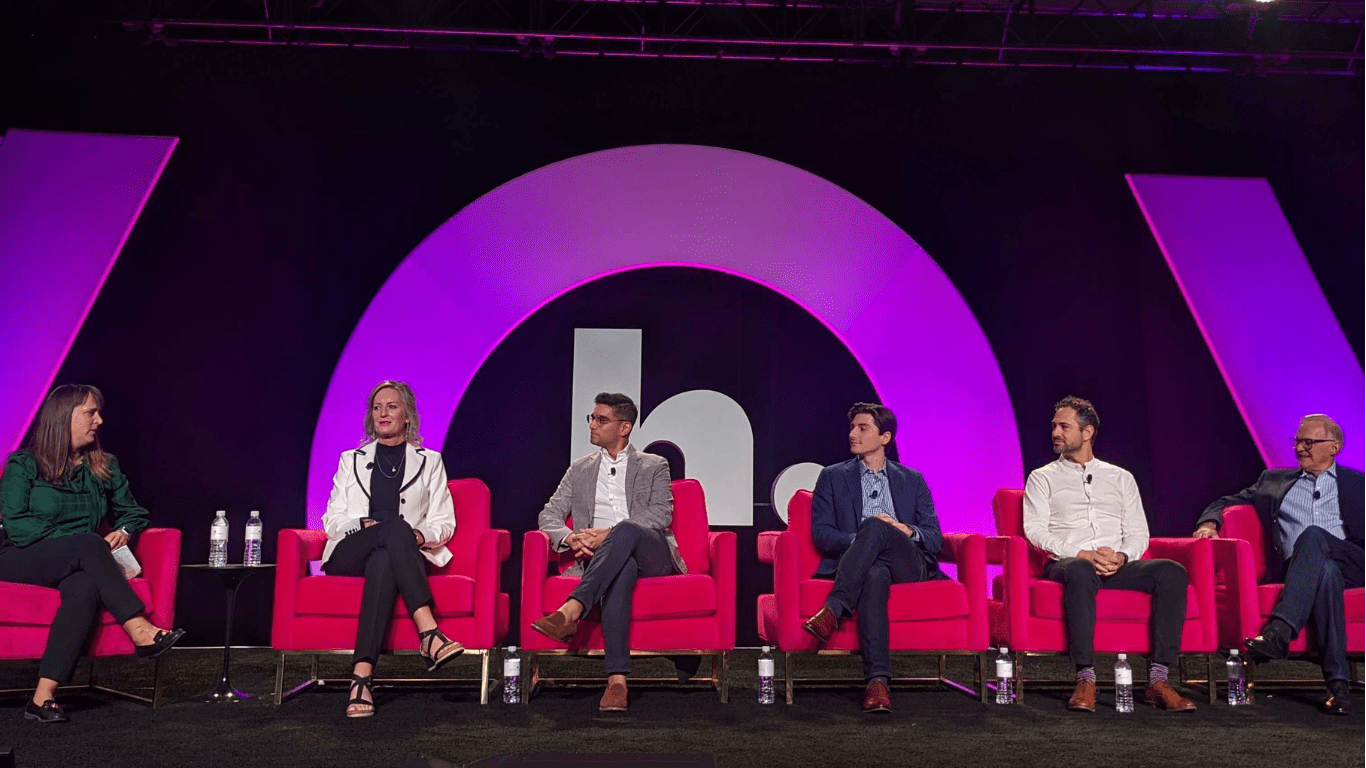Dancing with Primary Care and Fierce Healthcare on the Disco Stage in Vegas

When I first received the invitation to speak on a panel hosted by Fierce Healthcare senior editor Heather Landi at the HLTH 2024 conference in Las Vegas, I was genuinely thrilled. For the past three years, I’ve experienced serious FOMO as key Elation leaders jetted off to Vegas to meet with health technology innovators and investors from around the world. It always seemed like such an exciting and significant event. Finally, I’d get the chance to see what all the buzz was about. Even more exciting was the news that our panel would be held on the “disco stage”. My next question was, “Will I need to wear sequins?”
HLTH is one of the largest annual events in the healthcare industry, with over 12,000 attendees, including more than 2,700 CEOs and investors, drawing celebrity keynote speakers, and showcasing cutting edge innovations in healthcare from over 900 exhibitors. Surrounding the enormity of the event was the audacious glitz and glamor of the Venetian Hotel on the Las Vegas strip, with music piped in, dancing lights, and casinos buzzing 24/7. We’d expect nothing less from Las Vegas!
The topic of Heather’s panel was The Future of Primary Care, and I was incredibly honored to share the stage with Dr. Geoffry Rutledge, Dr. Ankoor Shah, Bobby Shady, and Ethan Fischer. Each of these primary care champions brought a unique perspective to our discussion, sharing their expertise on topics like virtual care, integrated behavioral health, team-based care, and payment reform–all of which will have starring roles to play in the primary care of the future. Each of these leaders represents innovation in care delivery, while my contribution to the conversation was my experience working for a primary care-focused EHR company and practicing in the direct primary care model.
My message was this:
-
We need to remember the fundamentals. Primary care is about relationships. Primary care physicians need the time to care, but too many things are getting in the way. We tend to spend a lot of resources finding ways to squeeze more efficiency out of primary care–and certainly efficiency is a good thing. But primary care has been in a pressure cooker for 50 years, forced into a hyper-efficiency that feels like warp speed. It’s time to re-think what efficiency means, and look at it through the lens of what gives a PCP more time with her patients, not more patients with her time. I’ve never met a patient who says, “Doc, I sure hope you can find a way to see 3 more patients in a day.” Patients want more time with their doctor. This is where Elation focuses our technology efforts, and this is where direct primary care has been a gamechanger for me with my own patients.
-
We have built entire industries around extracting profit from healthcare. The result is, as Dr. Michael Fine put it, “We don’t have a healthcare system, we have a health services marketplace built for profit, not for people.” Profiteers love to exploit primary care for pills and referrals to feed their downstream revenue machines. But primary care belongs to patients, with doctors who have the autonomy to do what’s in their patients’ best interests. Retail giants, insurance companies, private equity, hospitals, and health systems are largely contributing to getting in primary care’s way, and if they aren’t going to build systems and investments aimed at helping primary care do what it does best, then they should move out of the way.
-
Primary care should not be paid for through insurance. Primary care is something that everyone needs. We don’t pay for The Thing That Everyone Needs through insurance in any other industry. It would be like using insurance to pay for clean drinking water, public sanitation systems, or public education. There should be a publicly funded option available to everyone, regardless of employment status, demographics, or ability to pay. Because the magical thing about primary care is that the more you use primary care for the things that everyone needs, the less you use your insurance to cover the things you hope you never need!
Innovation in healthcare is exciting, but we can’t afford–literally, we can’t afford–to skip the basics. Think of how much primary care that even a fraction of the money invested in the many niche inventions seen at HLTH could have bought us. In 2025, I hope to see more investors and innovators focusing their efforts on solving the fundamental needs of everyday Americans, starting with primary care.
